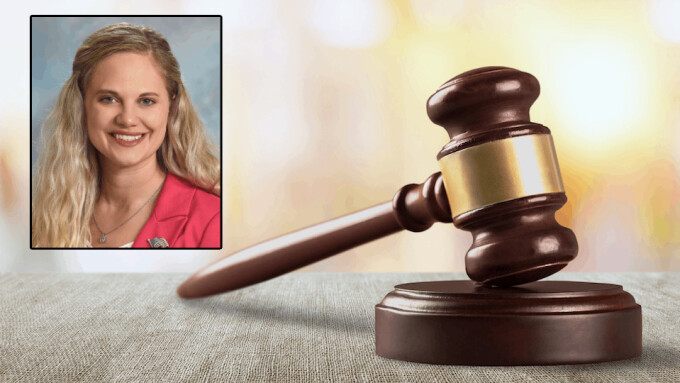PIERRE, S.D. — A South Dakota state representative has vowed to reintroduce legislation in the 2025 session that would impose age verification restrictions on adult websites.
Representative Bethany Soye, R-Sioux Falls, is leading a group of lawmakers pushing for a vote on a revised bill, after House Bill 1257 was killed by the state Senate in March over concerns about its constitutionality, as well as technical and enforcement issues.
"The pornography industry is not welcome here in South Dakota to prey on our children," said Soye. "Their innocence is not for sale. We must protect our kids, and I urge my colleagues to stand with me."
The revised legislation, which applies to sites that "create, host, or make available material harmful to minors," would require sites to impose strict age verification processes, including the use of government identification.
It would also impose criminal penalties for noncompliance, with sites receiving one written warning before prosecution.
The revised bill still faces opposition in the state Senate, with Sen. Helene Duhamel, R-Rapid City, expressing concerns over the enforceability of the legislation as well as its potential financial burden on the state.
"We do not want South Dakota taxpayer dollars awarded to pornographers by a judge because we passed a bad law," said Duhamel, who chairs the subcommittee on protecting minors from harmful content. "And we do not want to give any of these sketchy companies access to state databases for their age verification."
However, South Dakota's Republican attorney general, Marty Jackley, has voiced his backing for age verification restrictions.
"I support age verification for illicit websites," he stated.
In justifying her position, Soye, who serves on the legislature's Summer Study Committee on Artificial Intelligence and Internet Regulation for Minors, cited spurious psychological claims that pornography is damaging.
"It’s time for us to stop playing political games and pass this bill to protect our children from the harms of pornography," she said. "We know that pornography damages young minds, leading to lifelong emotional and psychological harm."
UPDATE: The 15-member Artificial Intelligence and Regulation of Internet Access by Minors committee voted unanimously Wednesday morning to support reintroducing Soye's bill, with two amendments — an amendment striking language that would have allowed the state to classify violations of the age verification as deceptive trade practices, and an amendment changing what qualifies as a platform covered by the bill, intended to keep social media sites, for example, from being affected.







